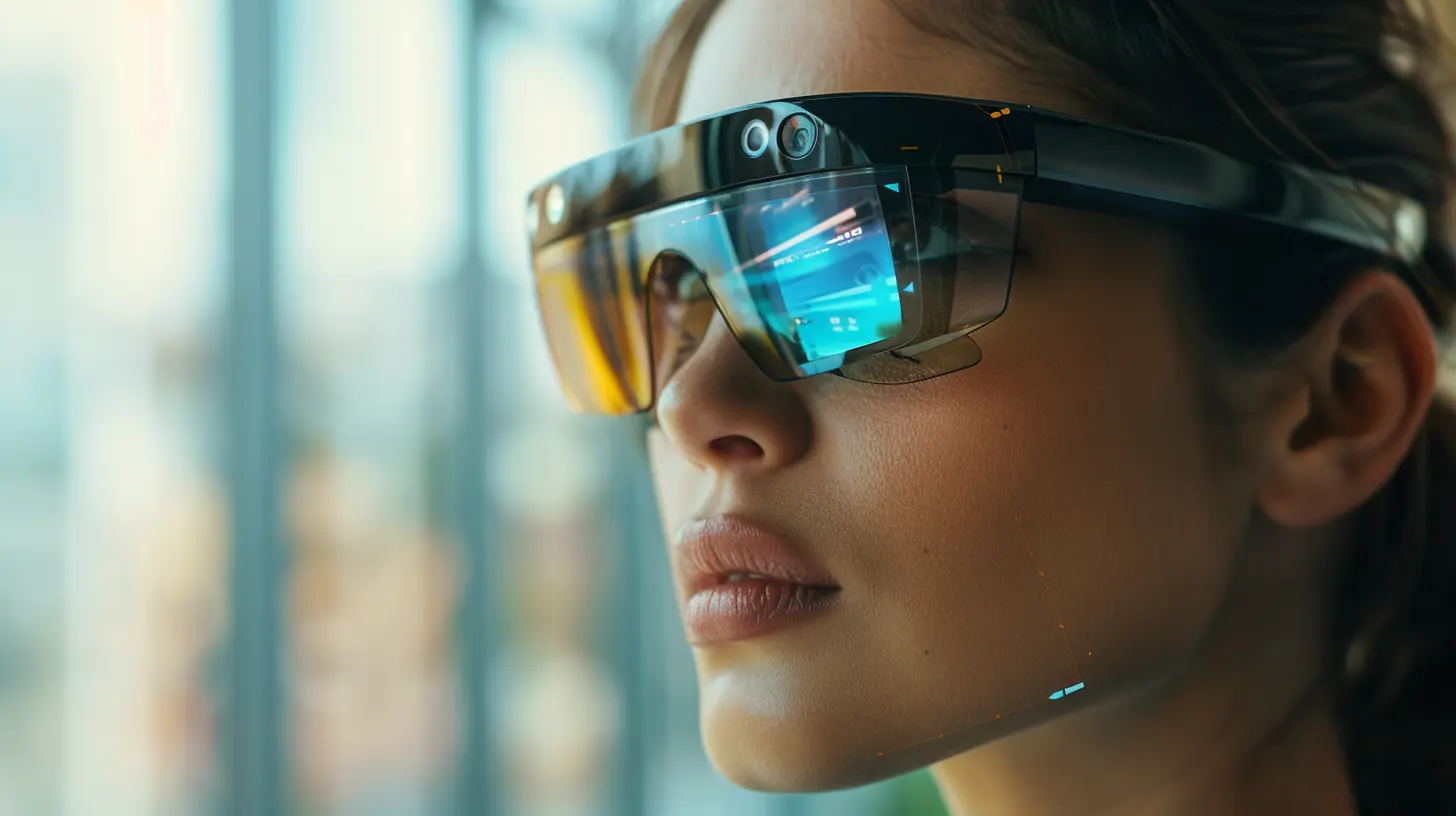Augmented Reality Glasses for Real Estate: A New Perspective
21 August 2025
Technology is changing real estate in ways we never imagined, and Augmented Reality (AR) glasses are at the forefront of this revolution. Buying a home or commercial property isn’t just about bricks and mortar anymore—it’s about experience, convenience, and immersive visualization. Imagine putting on a pair of AR glasses and instantly walking through properties, even if they’re thousands of miles away. Sounds futuristic, right? Well, the future is here.
In this article, we'll break down how AR glasses are redefining real estate, making it easier for buyers, sellers, and agents to connect in a whole new way. 
The Evolution of Real Estate Technology
Think about how much real estate has changed with technology. From newspaper listings to online portals and now virtual reality (VR) tours, every step has made property buying and selling more seamless. While VR has been popular for virtual property tours, AR glasses take it a step further—bringing properties to life in real-time, wherever you are.With the rise of smartphones, AI, and 5G, AR glasses are becoming more practical and accessible. They are no longer just a gimmick but a powerful tool that’s shaping the future of real estate.
What Are AR Glasses?
Before we dive into their impact on real estate, let’s quickly define what AR glasses actually are. Unlike virtual reality headsets, which create a fully immersive digital world, AR glasses overlay digital images, data, and interactive elements onto the real-world environment.What does this mean for real estate? Instead of looking at a 2D blueprint or a flat MLS listing, buyers and agents can visualize properties in a 3D interactive space—right before their eyes.
How AR Glasses Are Transforming Real Estate
1. Virtual Property Tours—Anywhere, Anytime
One of the biggest game-changers AR glasses bring to real estate is remote property touring. Buyers no longer have to be physically present to explore a home or office space. By wearing AR glasses, they can:✅ Walk through a home from anywhere in the world.
✅ See real-time modifications—change wall colors, floor types, or furniture styles instantly.
✅ Switch between furnished and unfurnished views to see how a space looks in different setups.
For international buyers, investors, or simply busy professionals, this cuts down travel time and makes buying decisions faster and more informed.
2. Enhanced Home Staging with AR
Staging a home can be expensive and time-consuming. But with AR glasses, real estate agents can virtually stage properties without lifting a single piece of furniture.With AR technology, buyers can:
✅ See different furniture layouts and interior design styles on-demand.
✅ Visualize renovations—knock out a wall, change the flooring, or add a kitchen island in seconds.
✅ Compare multiple design themes to find the one that matches their taste.
This helps buyers connect emotionally with a space, making them more likely to close the deal.
3. Better Real Estate Agent Presentations
For real estate agents, closing deals is all about presentation. AR glasses make property presentations more immersive and engaging, helping clients visualize:✅ Neighborhood insights—schools, parks, restaurants, and amenities highlighted in real-time.
✅ Market trends and pricing comparisons overlayed on the property view.
✅ Historical and construction details instantly displayed while looking at a property.
Instead of traditional brochures or PowerPoint slides, AR glasses turn every property into an interactive experience that keeps clients engaged.
4. Faster and Smarter Property Buying Decisions
One of the toughest parts of buying real estate is imagining how a space will look and feel after moving in. Traditional photos and 2D floor plans don’t always capture the essence of a place.AR glasses change this by:
✅ Providing instant customization—buyers can see different design options in real-time.
✅ Overlaying important data—such as sunlight patterns, room dimensions, and even energy efficiency.
✅ Eliminating doubts—because buyers can instantly see what works and what doesn’t.
This reduces hesitation and makes the decision-making process much faster and more confident.
5. Commercial Real Estate Benefits
It’s not just residential real estate that’s benefiting from AR glasses—commercial real estate is seeing a transformation too. For developers, investors, and tenants, AR glasses help:✅ Visualize office layouts and test different workspace configurations.
✅ Analyze foot traffic patterns for retail spaces.
✅ Showcase unfinished properties by overlaying completed versions on construction sites.
This is a game-changer for large-scale real estate projects, allowing stakeholders to see the finished product long before construction is complete. 
Challenges and Limitations of AR Glasses in Real Estate
Of course, no technology is perfect, and AR glasses are still evolving. Some challenges include:🔴 High costs – While prices are dropping, high-end AR glasses can still be expensive.
🔴 Learning curve – Real estate professionals need some training to use AR tech effectively.
🔴 Hardware limitations – Battery life, display quality, and processing power are improving but not perfect.
🔴 Consumer adoption – While AR is growing, not everyone is comfortable using smart glasses yet.
Despite these hurdles, advancements in AR technology are rapidly solving these issues, making adoption inevitable.
The Future of AR Glasses in Real Estate
So, where is this all headed? As technology improves, costs decrease, and adoption grows, AR glasses will soon become a standard tool in real estate.In the coming years, we can expect:
✅ More lightweight and stylish AR glasses that feel natural to wear.
✅ Enhanced AI integration—where AR can suggest properties based on preferences.
✅ Seamless connectivity with smart home tech, allowing buyers to interact with IoT devices during tours.
✅ Higher adoption rates, making AR real estate experiences mainstream.
It won’t be long before buying a home with AR glasses is as common as browsing Zillow on your phone today.
Final Thoughts
The world of real estate is changing, and AR glasses are bringing a whole new perspective to the table. Whether it’s virtual property tours, interactive staging, or smarter buying decisions, this technology is making the whole process faster, more convenient, and incredibly immersive.Of course, like any emerging tech, there are challenges—but the benefits far outweigh the drawbacks. If you’re in real estate, now’s the time to embrace AR glasses and stay ahead of the game.
After all, the future of real estate isn’t just about looking at properties—it’s about experiencing them like never before.
all images in this post were generated using AI tools
Category:
Ar GlassesAuthor:

Gabriel Sullivan
Discussion
rate this article
1 comments
Arden Kim
It's exciting to see how augmented reality glasses can transform real estate experiences! This technology truly has the potential to make home hunting more immersive and accessible.
September 6, 2025 at 4:08 AM

Gabriel Sullivan
Thank you! I'm glad you share the excitement about augmented reality glasses in real estate—they really do offer a transformative way to enhance home hunting experiences!


